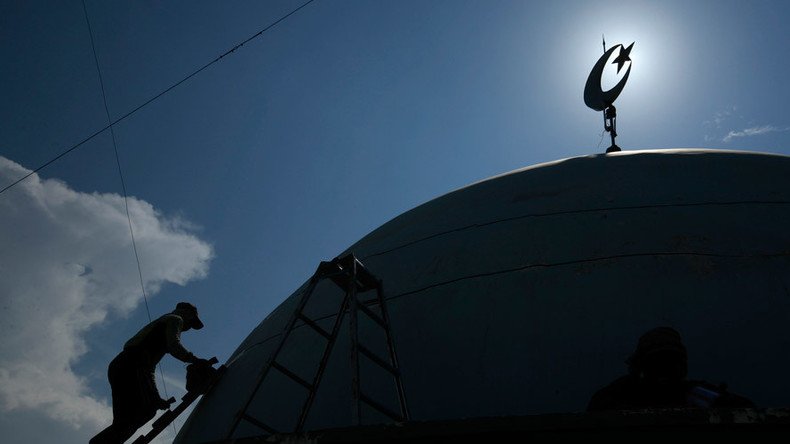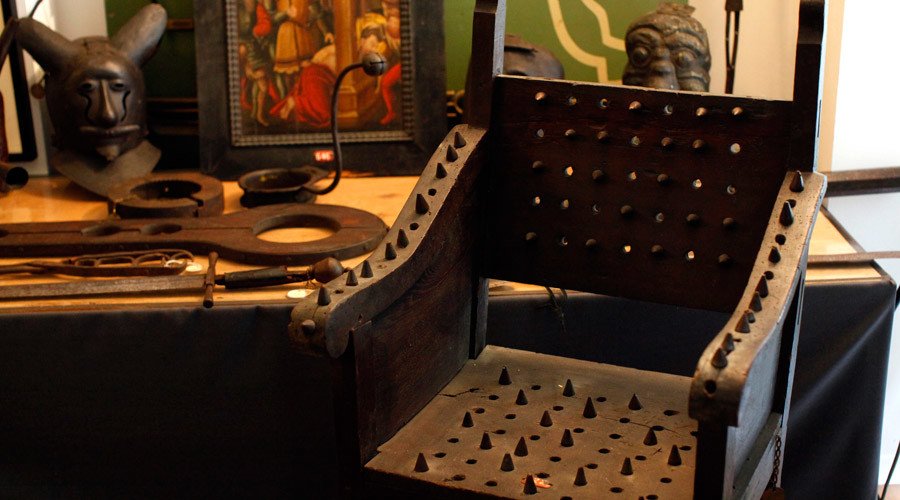Islam: Waiting for a reformation?

For a Christian in the West, his religion is a matter of personal choice; it is a bolt-on to whatever he wishes to do the rest of the time. But he often makes an unfair comparison when he compares his religion with the barbarity of some forms of Islam.
The Daily Mail reported on February 18 that ISIS had beheaded a fifteen-year-old boy after he was “caught listening to Western music.” It is increasingly difficult to tell what is true in the media – what is photoshopped and what not – but it is safe to assume that ISIS is ideologically wedded to the practice of chopping bits off people whose moral standards do not concur with its own.
ISIS, clearly, is directed and enabled by Western agencies, and includes many mercenaries and outright criminals. While its job is to balkanize Israel’s enemies and provides the justification for the invasion of European nations by alien elements, its ideological orientation is founded on a medieval worldview and a tradition of tribal religion.
Very few Christians of whatever stripe would have any qualms about working in a bank, for example. Yet usury was repugnant to the Church when it had teeth; is expressly prohibited in Deuteronomy, and discouraged in Psalms. Nevertheless, today’s Christian can spend all week as a small cog in a big system which makes the poor of the world even poorer (which is what usury does) without giving the matter any thought. Because he sings some songs on a Sunday and provides a charity lunch to the homeless and exchanges some awkward hugs with other members of the congregation, he thinks that this is what religion is – or should be – for everyone else.
When he sees bearded psychopaths chopping off fifteen-year-olds’ heads for listening to what he can hear in any shopping centre, he mentally compares that with the last time he sang Kumbaya, sat through a homily of perfectly enunciated consonants, or shared a few cucumber sandwiches with some people who smelled a bit rank but were heart-warmingly appreciative.
And, naturally, he is horrified. But his horror belies not only a misunderstanding of the differences in what the word religion means for him and for the head-choppers, but also ignorance of the source from which his own tradition derives.
Christendom
Christianity began life as two small sects: one based on the experience of Peter and James in Jerusalem, and one based on the hallucinations – or visions, if you like – of Paul which took shape initially in the Jewish diaspora. The former movement was sucked back into the Judaism of which it was an outgrowth. The latter was persecuted for a while under Nero, Decius and Diocletian before receiving the approval of Constantine and being made the official faith of the Roman Empire.
Constantine – who had done lots of killing as a pagan – continued no less enthusiastically as a Christian. Two churches flourished on the back of the political segmentation of Constantine’s empire: the Catholic Church in the west and the Orthodox Church in the east.
These two factions, competing over a single inheritance, had very little in common with the Christianity of today – and practically nothing with the practices and beliefs of those men who founded the original sects some centuries earlier.

In time, there arose a total society – one envisaged by Augustine and given feet and teeth by Charlemagne. Membership of that society and acceptance of its rules was ensured by baptism, which was compulsory and irrevocable. Those who renounced their baptism by infidelity or heresy were killed.
If you are excommunicated by a Christian church today, you lose some friends and need to find a new way to fill your Sunday mornings. If you were excommunicated by the Catholic Church in the era in question, your life was over, and so was that of anyone caught selling you food or providing you with shelter.
The situation, then, is not that Christianity is kind and good and Islam is not. It is that since the division of Church and State in the West, people who live in the West think religion went away – or became safer somehow. But that is not exactly the case. What has happened is that today the lust for power and control which was previously couched in the language of religion has become entirely separate from the business of religion and is couched instead in the language of ‘freedom’ and ‘democracy’.
Christendom split its spirituality, its social control and its killing operations into separate departments. It is true that the Kumbaya department is largely innocuous. But its banking and military wings are not. And if we wish to compare fanatical ‘Islam’ on a fairer basis, we should compare it with NATO smart bombs and not with cucumber sandwiches.
NATO is what Christendom’s military wing became once it lost any use for the name of God; it happens also to be comprised largely of countries (we can take the US as an outgrowth of Western Europe) which made up Christendom prior to the fall of Constantinople in 1453.
While modern Muslims, increasingly, compartmentalize their activities as do modern Christians, many non-modern Muslims make no such distinctions and regard the practice of compartmentalization as either heretical, hypocritical, or both. They see that the Christendom of today which comprises NATO murders many more Muslims than it ever did during the Crusades, and they reach conclusions on that basis.
Modernity
A better comparison for the modern Christian to make, then, is not between Islam and Christianity, but between medievality and modernity.
Since modernity doesn’t chop people’s heads off for listening to music or make women wear burkas, it is easy for a modern to feel superior. But his broader congregation does carpet bomb countries into the ground for refusing to submit to an oligarchy of central banks owned by those who own his and which then must accept the entire litany of moral judgments which together comprise modernity.
Christendom underwent the Reformation. While directed at Rome rather than Constantinople, it represented a direct challenge to the ruling clergy. The result later became modern Christianity, a dwindling enclave of spiritual solace and non-political enthusiasms swamped by a broader terrain of military industry, economic manipulations and social diversions.
The Islamic world has not been through an equivalent process – or, at least, it is going through one, but on an incoherent and piecemeal basis. However, I suspect that if that process is ever completed, the mosques will become venues for jumble sales, cucumber sandwiches and the singing of an Arabic version of Kumbaya, and scimitars will be reduced to wall furnishings.
Then, the killing of innocents will be outsourced as a function of taxation and the preserve of government and take the form of economic sanctions and drone attacks on faceless, unknown targets – like civilized countries do today.
The statements, views and opinions expressed in this column are solely those of the author and do not necessarily represent those of RT.













